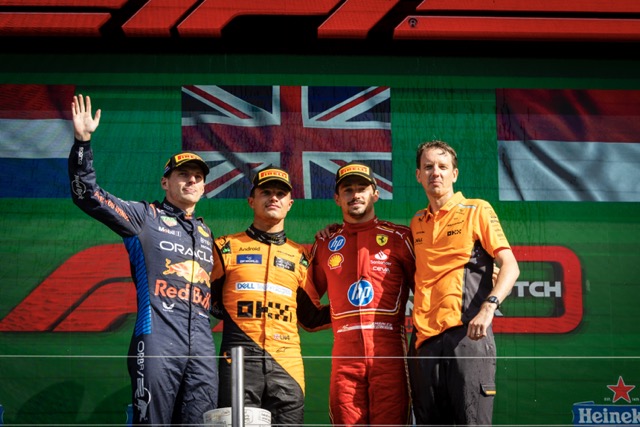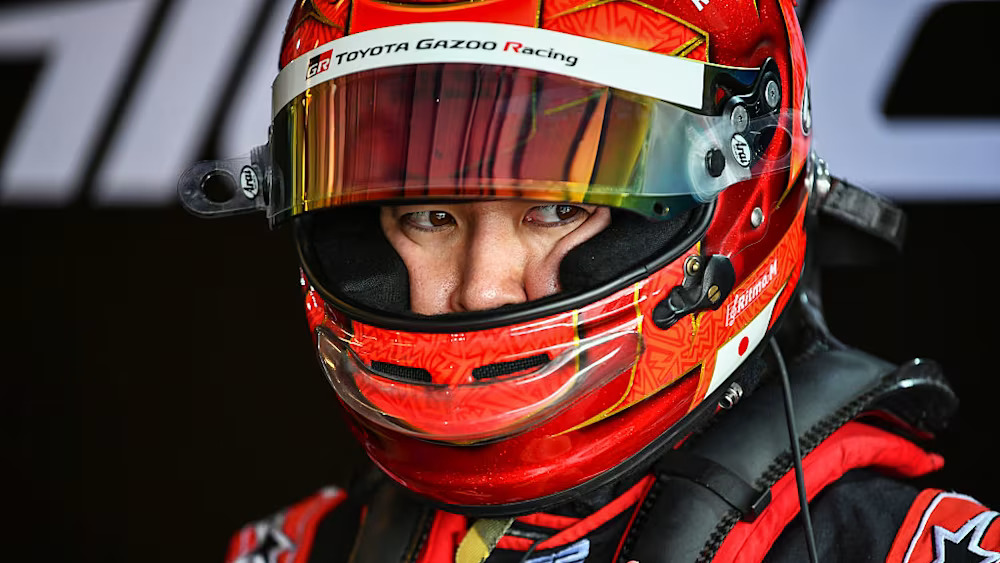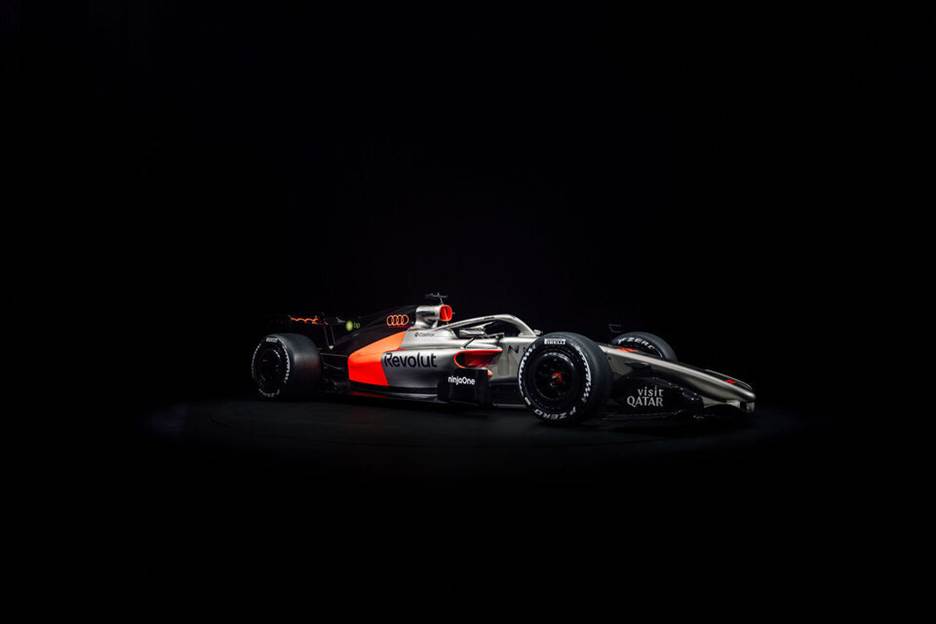The ongoing debate around swearing in Formula 1 radio communications has sparked strong reactions from drivers, with Lando Norris, Max Verstappen, Charles Leclerc, and Sergio Pérez all weighing in on the matter ahead of the Singapore Grand Prix. The controversy follows a recent push from FIA President Mohammed Ben Sulayem to limit the amount of foul language broadcast during races. The drivers, however, are pushing back against the idea, raising concerns about the impact such measures could have on the sport’s authenticity and intensity.
McLaren’s Lando Norris is among the most vocal critics of the proposed crackdown, suggesting that Formula 1 would lose an essential part of its appeal if drivers’ uncensored emotions were filtered out.
Norris said the championship would lose the “rawness of drivers and their thoughts and their feelings and things like that” if swearing were never broadcast. He added, “When I listen to it, I find it cool, and I find it exciting when you listen to these kinds of things. It’s not just nice, gentle, soft language that people are using.”
Norris believes the emotional outbursts from drivers, often a result of intense competition and the pressures of racing at high speeds, are a key part of what makes F1 engaging for fans. “We’re out there putting our hearts on the line, trying to race people, and we’re giving it our all,” he explained.
“Of course, there’s going to be some bad words on the other side of it, but it’s just because we’re trying, we’re wanting to give our best, and we feel hard done by when things don’t go right.”
When asked whether swearing should be banned, Norris expressed a firm stance against it.
“They get all the radio, and they have the choice just to press go out to public or not. I don’t think so.”
“You have obviously the kids listening and younger people, and obviously from that side you don’t want it to go out. But honestly, I just think it’s the passion of the sport, and it’s the passion of us wanting to go out and perform at our best in a very tough sport.”
Norris even offered a practical solution, suggesting, “Maybe if parents know, they can choose to pick between a bleeped out version and a non-bleeped out version.”
Max Verstappen, too, sees the matter as reflective of broader societal shifts but feels a different approach is needed. Rather than censoring drivers or implementing a strict policy, he advocates for simply not broadcasting the offending moments.
“I guess the world is changing a bit, but I guess it already starts with no broadcasting it,” Verstappen said. “Not giving the option for people to hear it in general would help a lot more than putting bans on drivers.”
Verstappen pointed out that some words, like the F-word, have become part of everyday language.
“For example, I couldn’t even say the F-word, and it’s not even that bad. ‘The car was not working, the car is Effed’ – and [it’s] ‘excuse me for the language.’”
Ferrari driver Charles Leclerc, while acknowledging the issue, expressed frustration over the focus on swearing, suggesting the FIA’s efforts would be better spent on more pressing matters.
“I think there are other priorities for the FIA to look at at the moment. We are adults at the end, and I think we also are one of the only sports where we hear the drivers speak during the actual race,” Leclerc commented.
Leclerc believes that broadcasting less of the swearing rather than trying to police drivers’ language would be a more reasonable approach, especially given the high-stress environment of racing.
“For us to control our words when you are driving a car at 300 km per hour in between walls for some street track is tricky. And we are humans after all, so I don’t see that much of a priority.”
Sergio Pérez took a slightly different angle on the issue, questioning whether it was realistic to expect drivers to police their language in the heat of competition. When asked about the FIA’s push, Pérez said, “I don’t think many people in the heat of the moment will follow their suggestions.”
He also pointed out the unique nature of F1, where drivers’ comments are broadcast live, often under intense pressure.
“Imagine in football, the footballers have the microphone after they get kicked in the leg. But you have to control yourself.”
Pérez ultimately suggested a more extreme solution, saying, “If they want to control that, I think they should just delete the radio. Take away the radio and give us the privacy.”
While the FIA seeks to maintain the image of motorsport and differentiate it from other forms of entertainment, the drivers argue that trying to suppress natural emotions could take away an essential part of what makes Formula 1 exciting. For many fans, the unfiltered moments are a reflection of the passion and intensity of the sport, providing insight into the minds of drivers as they push their limits on the track.
With differing views from the drivers and the FIA’s clear intent to address the issue, it remains to be seen how the situation will be handled in future races.





